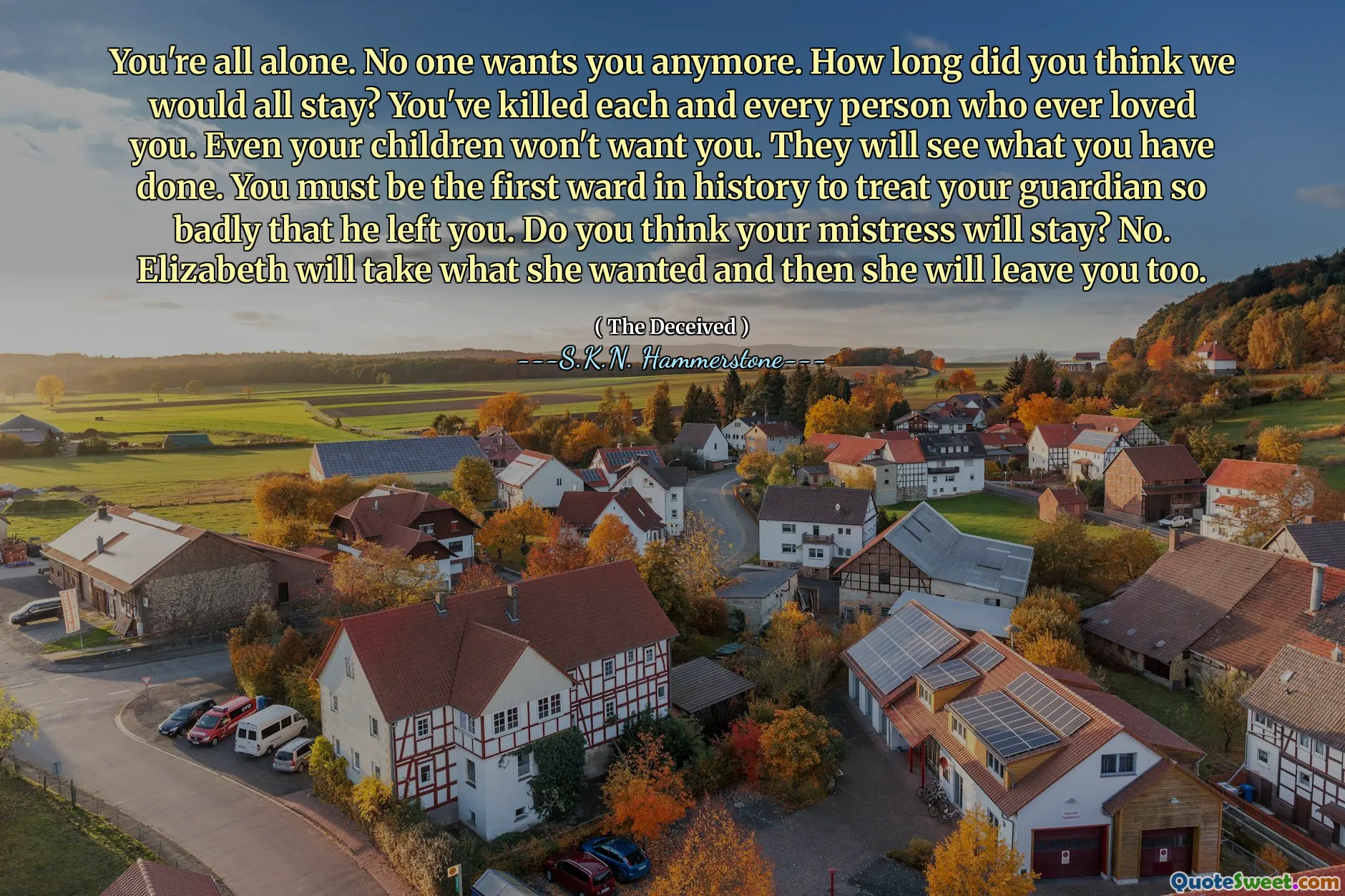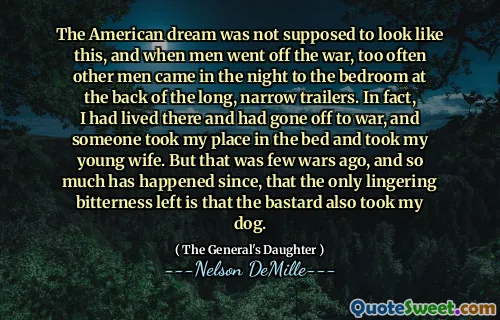
You're all alone. No one wants you anymore. How long did you think we would all stay? You've killed each and every person who ever loved you. Even your children won't want you. They will see what you have done. You must be the first ward in history to treat your guardian so badly that he left you. Do you think your mistress will stay? No. Elizabeth will take what she wanted and then she will leave you too.
[The quote depicts an intense moment of emotional revelation and despair, highlighting themes of guilt, abandonment, and betrayal. It seems to be spoken from a perspective of someone confronting a person who has caused harm to loved ones and is now facing the consequences of their actions. The tone is accusatory and bitter, emphasizing isolation and loss. This kind of intense emotional expression can evoke feelings of reflection on the damage caused by one's choices and the inevitable loneliness that results from betrayal and neglect. Sometimes, in literature — as in this quote, which appears to be a reflection from a character in turmoil — such words serve as a wake-up call or a moment of reckoning. The message underscores the destructive nature of ego, cruelty, and perhaps pride, which can alienate even those closest to us. It sketches a vivid picture of remorse intertwined with judgment, warning of the high costs of inflicting pain on loved ones and the solitude that follows. In a broader context, this quote urges us to consider the importance of compassion, loyalty, and honesty within our relationships, and how neglecting these virtues can lead to devastating personal consequences. It’s a stark reminder that actions have far-reaching impacts, often bringing about irreversible damage — an emotional portrait of downfall and lost trust that can resonate deeply with themes of human vulnerability and the consequence of moral failings.]





